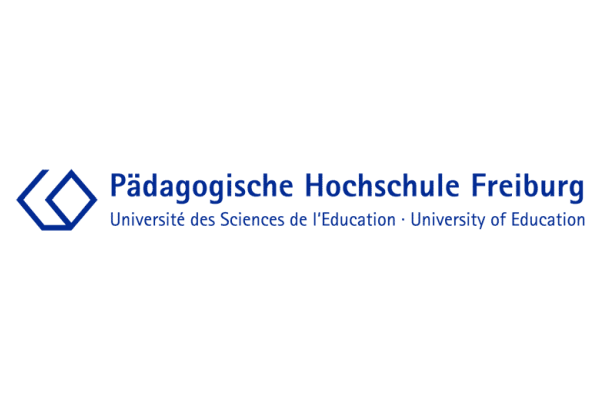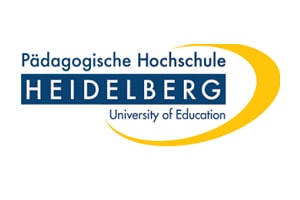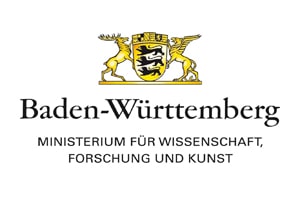
Research Training Group
Diagnostic Competencies of Teachers: Diagnostic judgment processes as information processing and the importance of person and situation characteristics.
Description
Among the many activities that teachers carry out on a daily basis, diagnostic activities, i.e. any form of gathering information about the state of learning or the learning process in order to prepare pedagogical decisions, are considered to be key. The term diagnostic competence is used for a bundle of constructs comprising knowledge, skills, motivations, and beliefs conntected to diagnostic practice. The great importance of this facet of professional competence is contrasted by an unsatisfactory state of research, which is characterized by a number of different research traditions that have so far been poorly interconnected. A first phase of the research training group DiaKom was dedicated to the clarification of influences and structures of diagnostic thinking and practice.
Subprojects
SP1: Linking pedagogical content knowledge and logical reasoning when setting up and testing diagnostic hypotheses on student errors.
Adaptive and individualized instruction is based on accurate identification of faulty student conceptions (especially unsustainable conceptions) by teachers. Such misconceptions can be diagnosed on the basis of incorrectly solved tasks. The diagnosis requires not only the perception of task characteristics and error patterns, but also the application of pedagogical content knowledge about misconceptions as the cause of such error patterns. In the field of decimal fraction comparison, the most common misconceptions and the resulting error patterns are well researched. However, when working on tasks, different misconcepts can lead to the same error pattern. The challenge for the diagnosing teachers is to select further tasks for students in such a way that a clear attribution of different error patterns to one error concept as the cause can be made. It can be assumed that teachers may be subject to confirmation bias, i.e. they choose tasks that confirm their initial hypothesis instead of examining a possible refutation (Norman & Eva, 2010; Wason, 1968). Therefore, in addition to pedagogical content knowledge (about possible misconceptions about the diagnostic object), they also need strategic knowledge for appropriate diagnostic reasoning. In experimental studies, the influence of pedagogical content knowledge on the interpretation of error patterns (inference from a solution to possible causes), the influence of strategic knowledge on task selection (to narrow down the cause of the error), and the linking of these two knowledge facets are investigated in the area of comparing decimal numbers.
SP2: Integrated use of pedagogical content knowledge and language education knowledge in the interpretation of learning-relevant features in mathematics tasks and student solutions.
Teachers assess the demands placed on learners and their expressions in subject lessons on the basis of their pedagogical content knowledge. Considering the importance of linguistic features of teaching-learning situations, the language education perspective must also be taken into account in the assessment. While a wide range of findings are already available on language features relevant to learning, knowledge about teachers’ judgment processes in this area has not yet been systematically investigated and is largely based on experience from in-service training contexts. With regard to the teaching and learning of mathematics, the linking of the two areas “linguistic structures” and “mathematization” is of particular importance: While on the level of surface features the two dimensions language and mathematics can rather be considered separately, in the case of deep features the two areas are closely related for diagnostic judgements as well as for didactic decisions: Teachers have to recognize, for example, which sentence constructions or which prepositions can be centrally relevant or aggravating for learning, taking into account the required mathematization or the basic concept to be activated (Wilhelm 2016). In addition to content and linguistic knowledge, they also need knowledge of pedagogical content knowledge and language education knowledge. It can be assumed that a close linking of the specific pedagogical content knowledge and language education knowledge enables a higher diagnostic accuracy. In the present study, therefore, different representations of knowledge are constructed (pedagogical content knowledge and language education knowledge either separate or integrated) and their use in the interpretation of tasks and solution attempts (in the form of vignettes) is investigated. It is assumed that in the case of verbal short answers of diagnosing teachers, the integrated form of knowledge also leads to a more profound and interconnected assessment of task difficulties.
TP3: Integration of content knowledge and pedagogical content knowledge in the perception and interpretation of students’ ideas about substances and their properties.
The ability of teachers to diagnose student (mis)conceptions as learning prerequisites of students in chemistry classes and to be able to assess their influence on teaching success contributes to a high degree to the quality of adaptive teaching. There is agreement that above all pedagogical content knowledge (PCK), but also the content knowledge (CK) of a teacher have an important influence on the quality of the diagnostic judgment. However, it is unclear whether and at which points the knowledge domains become effective in the process of the genesis of a diagnostic judgement. According to the DiaCom framework (Loibl et al., 2020), we assume that the genesis of a diagnostic judgment about teacher students beliefs is influenced by information processing (a cue leads ti a relevance assessment and the leads to the diagnostic judgment) through specific knowledge (CK and PCK): It is investigated whether the knowledge domains CK and PCK influence the information processing and how informations processing changes when these knowledge domains are specifically manipulated by interventions. With the help of teacher students’ reasoning, conclusions are to be drawn about their information processing. This is expected to provide clues about the way in which the CK and PCK knowledge domains are integrated into information processing.
SP 4: Pre-service teachers’ use of informations when diagnosing first graders’ number sense.
Teachers’ classroom-based diagnostic activities are characterised by a high degree of complexity; the situational information (cues) is often very rich. Cues have to be perceived and it has to be decided whether they are highly valid or less valid for a diagnostic judgment. Findings in professional research indicate that novices from different domains do not distinguish between highly and less valid information, but use all available information for their judgment. On the way to diagnostic expertise, teachers should increasingly be able to identify and selectively use information with high validity. The project will examine whether pre-service teachers (as novices) actually use all the information available to them or whether information processing and the quality of diagnostic judgment can be influenced by knowledge about the validity of the information. The focus is on rich, task-based teaching situations from early primary school arithmetic lessons represented by authentic text-picture vignettes. The validity of the information is defined by the existing research literature and validated by Mathematics education experts. Information use will be determined by varying the information provided and by process data using the Restricted Focus Viewer (Jansen et al. 2003).
SP5: Influence of pedagogical content knowledge and education-psychological knowledge on the perception and interpretation of teacher actions in Physical-Education (P.E.) lesson situations.
Being able to adequately assess students’ learning prerequisites is a central task of the teaching profession. For diagnostic decision-making processes, it can be assumed that evidence-based theories and models form a basis for diagnostic decisions, as this supports the recognition of features relevant to the decision, substantiates the interpretation of the situation and thus justifies the diagnostic decision. Although there are theoretical assumptions and empirical evidence on how different areas of theoretical knowledge affect this information processing, further analysis of such processes in different diagnostic situations is needed to gain a deeper understanding. In this study, decision-making situations are generated in which a variety of information is provided. It is assumed that a diagnosing teacher perceives, interprets and uses specific information for decision-making depending on the theoretical knowledge base. Against this background, the question will be explored whether knowledge of a particular psychological or didactic theory influences information processing in such a way that different (diagnostically relevant) features are perceived and processed and decisions are changed as a result. This will be investigated in diagnostic judgments of student utterances on the topic of acids and bases. The findings obtained in this subproject contribute to a closer link between the understanding of knowledge-based processes in professional action and research on diagnostic decisions. Insights can also be expected into the way in which different bodies of knowledge contribute to decision-making in the presence of multiple decision options.
SP 6: Interpretation of student solutions to respond adaptivly depending on time pressure and situated prior knowledge.
Teachers’ diagnostic competence includes the ability to identify misconceptions in student solutions and to respond adaptively to these solutions. The present project focuses on such situations and aims at the systematic analysis of the influence of situation characteristics (with/without time pressure) on diagnostic judgement processes of persons with different personal characteristics (pedagogical content knowledge, professional experience). The judgment processes are described in terms of the DiaCoM framework as information processing in which the information to be processed results from a) situational cues and b) the teacher’s knowledge structure. The cues are student solutions that indicate a particular misconception in the area of fractions, as well as more or less relevant features of tasks on fractions. With regard to the teacher’s knowledge structure, pedagogical content knowledge about misconceptions and task characteristics is particularly important. According to Brunswik’s lens model (1995) and the DiaCom framework (Loibl et al., 2019), a teacher’s judgment regarding the most adaptive responses in a specific diagnostic situation is assumed to depend on which of the presented information she perceives and how she uses her pedagogical content knowledge to process that information. Information processing is expected to be influenced both by the availability of episodic experiences (e.g., Leinhardt & Greeno, 1986; Putnam & Borko, 2000) and by time pressure (dual-process theories, e.g., Kahneman, 2000, cf. Rieu, Loibl, Leuders & Herppich, in press, for judgment processes in difficulty estimation with and without time pressure). To document the judgment processes, not only the selection of the most adaptive teacher responses but also protocols for thinking aloud are recorded and eye movements are tracked.
SP7: Influence of pedagogical content knowledge and content knowledge on the perception and interpretation of statistical pre-concepts in data-based decision-making situations.
While statistical preconceptions of students in data-based decision-making situations are considered relatively well researched, many questions remain about teachers’ diagnosis of students’ statistical competencies This project will use the DiaCoM model (Loibl et al., 2020) to investigate how teachers assess students’ statistical thinking when comparing data distributions and making a data-based decision. To investigate this question, a vignette-based test instrument will be developed in which student performance levels when comparing data sets will be experimentally varied with respect to the number of features considered (isolated or connected) and with respect to the statistical nature of those features (center, spread, shape). Assessments and rationales of prospective teachers (closed and open) will be collected via the vignette-based test format, and potential influences on diagnostic judgment and the judgment process will be tested in an experimental design.
TP8: Teacher judgments on student attitudes and evolution – The influence of Biology and RE teachers’ knowledge and own attitudes.
Accurate diagnoses of student’s attitudes and beliefs about the origins of the world and life are a necessary precondition for initiating successful teaching and learning processes. While many studies have surveyed the attitudes of both students and teachers, little is known about how teachers themselves arrive at appropriate judgments about students’ attitudes. It seems that teachers in general are able to form accurate judgments. However, there are considerable differences between teachers in terms of accurate assessments. The study aims to elucidate the information processing (perception and processing of cues) involved in the diagnostic judgments of students’ attitudes and beliefs about cosmogenisis and the origin and development of life, and to assess th influence of personal characteristics of the judging teachers on diagnostic performance. The results contribute to the targeted training of the prerequisite-rich facet of teachers’ diagnostic skills that is the focus of this study.
SP9: Influence of subjective theories about the relationship between autism and academic performance on the perception and interpretation of autistic students’ learning.
In the project, subjective theories about autism of (prospective) primary school teachers and their influence on the diagnosis of the academic performance of autistic pupils are investigated. Based on the DiaCoM framework (Loibl et al., 2020), subjective theories are the central person characteristics, while the academic performances to be diagnosed are the situation characteristics. The diagnostic thinking of (prospective) primary school teachers is influenced by their subjective theories about autism. We assume that diagnostic judgment of school performance is biased due to subjective theories about the relationship between autistic symptoms and aspects of academic performance. Diagnostic behavior is examined by means of processes (stimulation of subjective theories by information about symptoms of autistic students) and by means of products (judgment of academic performance).
TP10: Stress as a cause for the reduction of cognitive capacity in the perception and interpretation of demands in tasks and reading strategies of learners.
Teachers’ content knowledge and pedagogical content knowledge of difficulty-generating task features in reading tasks and reading strategies play a crucial role in assessing and promoting their students’ reading competence. Stress is a relevant factor that influences the process of diagnosing in teaching-learning situations but there is little research on such bias factors. However, the consideration of such biasing factors is crucial to assessing the validity of previous research findings and quantifying the extent of the influence of such factors. To date, such bias factors have either not been taken into account in studies or have been eliminated where possible. However, the consideration of such biasing factors is crucial to assessing the validity of previous research findings and quantifying the extent of the influence of such factors. To this end, the present subproject investigates the effect of stress as a state component on judgment accuracy on task difficulty and on the adequacy of reading strategies. We expect that content knowledge and pedagogical content knowledge can mitigate the effects of stress. In addition, it is likely that this data will allow conclusions to be drawn about the processes involved in reaching a diagnostic decision.
TP11: Influence of mindsets on the certainty and accuracy of diagnostic hypotheses about mathematical operational ideas when interpreting student solutions.
Diagnostic judgments about learners are usually associated with uncertainty (because, for example, multiple causes for an error are possible and student behavior is not always consistent). Such uncertain judgments are hypotheses that are supported or weakened by further information. Theoretically, such a multi-step diagnostic judgment can be interpreted as a reduction of uncertainty through data-based inference: Based on new available data (e.g. further student solutions) the uncertain diagnostic hypotheses are updated. This process can be described using models of Bayesian inference (cf. Griffiths, Kemp & Tenenbaum, 2008). While Bayesian models describe ideal inferences in the presence of uncertainty, human inferences are affected by contextual conditions (e.g., Krolak-Schwerdt et al., 2012). For example, mindset theory (Gollwitzer, 2012; Gollwitzer & Keller, 2016) predicts that uncertainty is more strongly considered in so-called deliberate mindsets than in implemental mindsets. The deliberate mindset is characterized by weighing multiple decision aspects before making a decision. An implemental mindset, on the other hand, focuses on goal-oriented, rapid problem solving after a decision to act has been made. In the project, we trigger a deliberate or an implemental mindset in prospective teachers prior to the diagnostic situation. Subsequently, the (prospective) teachers make decisions on the basis of learner products (with systematically varied cue stimuli) about learners’ latent characteristics (e.g. misconception, knowledge level etc. We expect to gain insights into how well information processing in diagnostic judgments can be modeled as uncertainty reduction in terms of Bayesian inference and to what extent the deviation of human judgments from an ideal Bayesian judgment can be explained by the mindsets of the judging teacher.
SP10: Interpretation of different requirements in tasks on price formation in dependence on an induced focus of attention on pedagogical content knowledge.
A central topic of economics education is the concept of price formation under competition. Tasks on price formation, as they are usually used, vary from a scientific point of view especially with regard to the addressed aspects of the concept of price formation as well as from a pedagogical point of view by the pedagogical approaches to the concept with their advantages and disadvantages. However, for the assessment of the quality of a pricing task from an economics educational point of view, the scientific or pedagogical quality by themselves are not sufficient; it is also crucial that both aspects are appropriately linked, i.e. that the selected pedagogical approach is not only suitable in principle, but also supports the learning process at the crucial points for the development of a scientifically appropriate concept. In order to arrive at an adequate interpretation of the task quality from an economics education perspective, pedagogical content knowledge must therefore be used in the sense of a genuine integration of (scientifically correct) content knowledge and pedagogical knowledge. Accordingly, the project investigates to what extent specific content knowledge and pedagogical knowledge can be integrated spontaneously or through an attentional focus in order to perceive the deep structure of the tasks in the sense of pedagogical content knowledge, and to interpret their quality accordingly. For this purpose, the perception and interpretation of the task quality of test persons with specific pedagogical content knowledge and pedagogical knowledge without or with an attentional focus (experimental groups F&D and F&D+) will be compared with the judgment processes of test persons with specific pedagogical content knowledge (comparison group FD), within the framework of an experimental design.




